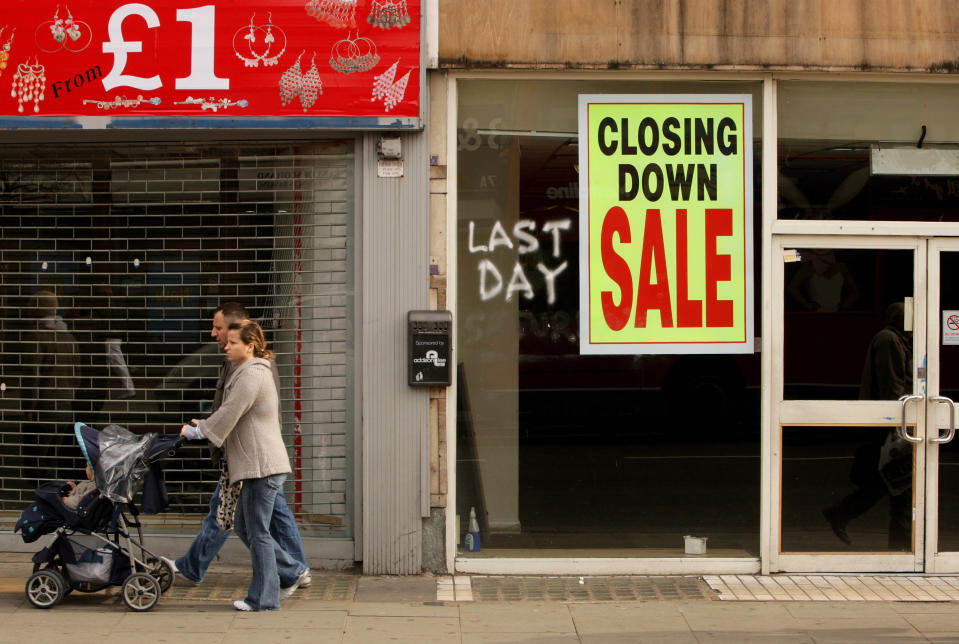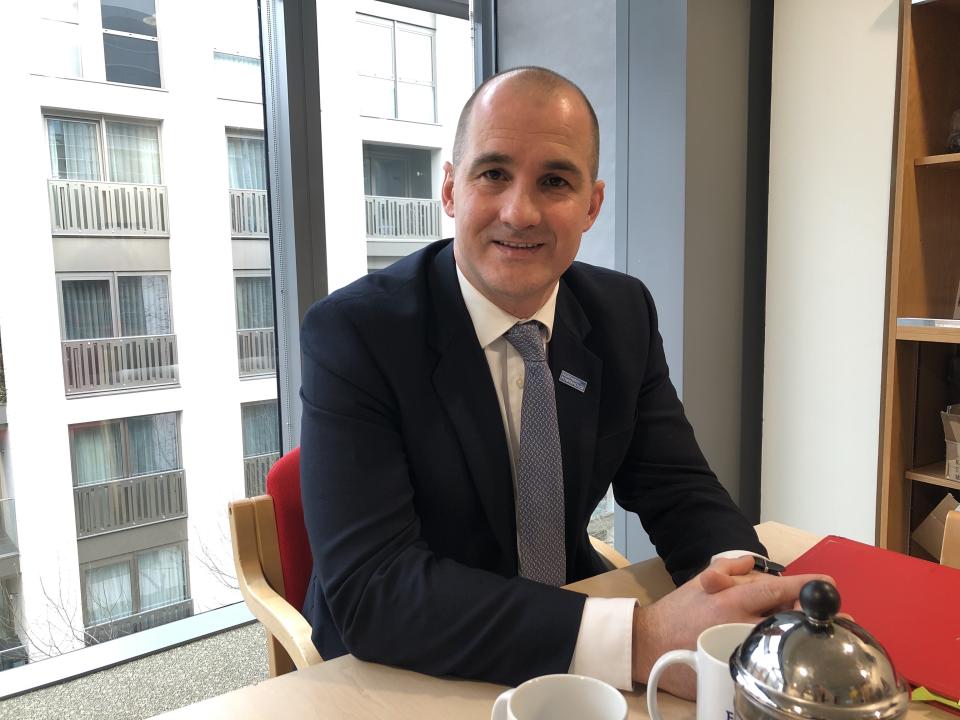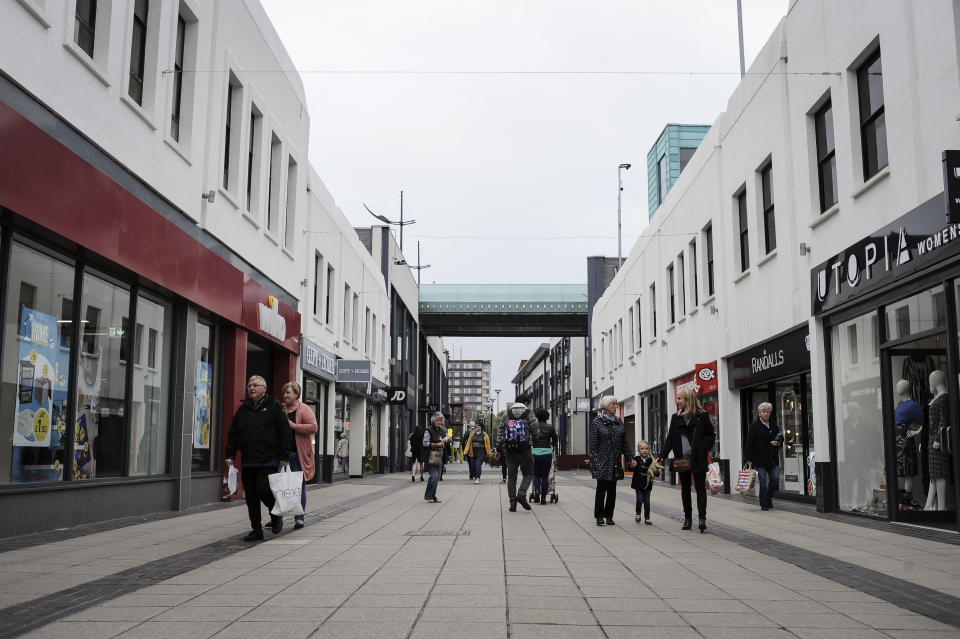UK's High Street tzar: Government's rescue plan won't cure all ills but 'a good start'

The UK government’s £675m ($865m) fund to revive Britain’s ailing high streets will not solve everything, but it’s a major step in the right direction.
That’s according to the politician charged with overseeing the government’s rescue plan, Jake Berry, who intends to allocate money to revamp struggling city centers. The goal is to create thriving local hubs that can take on the demands of increased digitalisation.
“I don’t claim that this fund is going to be the panacea that is going to fix every single high street up and down the country. But from my point of view, it’s a good start,” said Berry, a Conservative member of parliament and the country’s official high streets minister, in an exclusive interview with Yahoo Finance UK.
The challenges seem daunting: Britain’s struggling retailers have axed nearly 150,000 jobs this year as almost 20,000 shops and restaurants closed their doors. The latest annual data from the Office for National Statistics shows in-store retail sales grew by a modest 2%, while online sales grew 16%.
Berry described how the newly launched Future High Streets fund and other associated initiatives presented the country with a “once-in-two-generations” opportunity to restructure and redevelop local high streets.
In less than three weeks, the fund’s application form has been downloaded 1,000 times and Berry said he’d be willing to start funnelling money towards strong “shovel-ready” projects this year.
“There are lots of great ideas out there about how areas want to improve their high streets… But they don’t have the cash,” he said. “We don’t want to sit on this cash. We want to get it out the door.”
A single high street can get up to £25m from the fund, and there’s an expectation that local authorities would match the funding, Berry said.

New focus for UK high streets
Berry’s team consulted with retailers and experts, including the businessman and Timpson chain owner Sir John Timpson, to ensure the fund’s money would be directed towards high street makeovers that attract a younger generation of citizens.
He said shifting the high street focus from pure retail towards more social and experiential options is a priority. That could include more space for theatres, gyms, restaurants, community centres, child care centres and GP surgeries, he said.
Even as online sales and online competition grow, “80% of retail sales still take place face-to-face” and people still crave the community aspect of high streets, said Berry.
“We as human beings, as creatures, still love that social interaction,” he said. “Although high streets are changing, I’m quite confident that we’re not.”
His comments come in the same week that the British Retail Consortium (BRC) said its members reported zero year-on-year sales growth in December, the worst performance for the month since 2008. The flat figure compared with 1.4% growth in December 2017.
READ MORE: High streets suffering as Government ‘tied up with Brexit’
From bust to boom: Altrincham
Berry said he drew inspiration from the success story of Altrincham, just south-west of Manchester.
After being dubbed a “ghost town” in 2010 with shop vacancy exceeding 30%, Altrincham locals mobilised and ushered in a new focus on food and culture, along with updated trading hours and marketing. The area hosts community activities throughout the year, including a Christmas Lantern Parade and a two-week literary festival. Last year, Altrincham won the 2018 Great British High Street Awards.

Enthusiasm tempered by realism
Enthusiasm for this project is tempered by realism among retail experts and concerns about business taxes.
“Confidence among small retailers is at an all-time low, with pressure from employment costs, high rents and online competition ramping up,” noted Mike Cherry, national chairman at the Federation of Small Businesses (FSB). “The biggest challenge for them is the outdated business rates system, which is a huge burden on the high street and is disproportionately hurting small firms.”
Business rates are taxes on non-residential properties, including shops, which ramp up based on the rental value of a location. Cherry notes that business rates this year will raise more than £30bn for the government.
READ MORE: Ikea sales boosted by city stores, online sales
The director of the Centre for Retail Research, Joshua Bamfield, said: “We welcome this initiative which seems well-funded and wish it every success … [But] the continued high business rates levied on our high streets are making it impossible for high streets to compete.”
Berry responded to concerns about business rates by noting that the government recently announced new business rates relief for small retailers, after providing over £10bn in business rates support since 2016.
He said retailers he has consulted have told him: “Our biggest problem isn’t business rates. Our biggest problem is, no one is coming into the shops. We wouldn’t care about the business rates if we were really busy.”

The challenge of digital competition
The challenge presented by large online retail competitors, which have a reputation for moving around profits to avoid domestic tax, is also an area that requires government intervention to ensure retailers have a more level playing field.
“The lack of an online turnover tax means that online retailers can name their own tax rate and are advantaged because we have an over-liberal tax regime,” said Bamfield.
READ MORE: ‘This is the toughest market ever seen’
Berry acknowledged the challenge and said he was glad the latest UK budget included plans for a new 2% tax on the revenue of large digital firms, which would target companies like Amazon (AMZN) and eBay (EBAY).
“We need to … ensure that these [large online] platforms pay their fair share of tax,” he said. “I think we’re starting to get that balance right.”
The Treasury’s new digital sales tax is expected to be introduced in April 2020.
With files from Reuters and PA

 Yahoo Finance
Yahoo Finance 